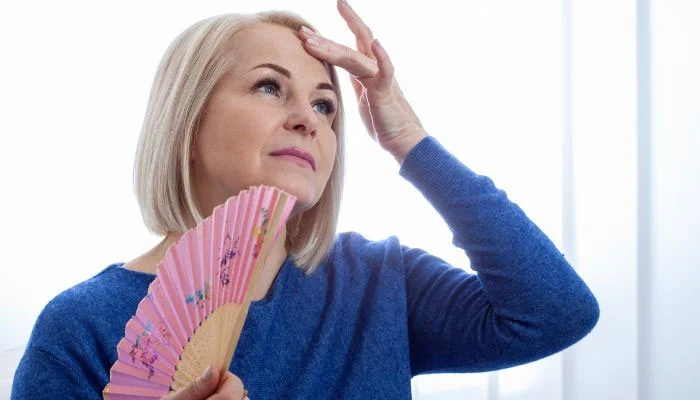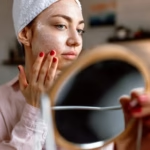Compared to men, around two-thirds of people suffering from dementia are women.
The World Health Organization defines dementia, an illness that is currently the seventh leading cause of death, as “a term for several diseases that affect memory, thinking, and the ability to perform daily activities.”
A health conference presentation in 2022 claimed that women who enter menopause before hitting their 40s are more likely to develop dementia compared to women at the age 50-51 i.e. the average onset age for menopause.
Why? A Chinese university deduced that lowered estrogen levels suggest a probable connection between early menopause and dementia.
“We know that the lack of estrogen over the long term enhances oxidative stress, which may increase brain aging and lead to cognitive impairment,” the university claimed.
How can Women Avoid Dementia Post Menopause?
Researchers found that middle-aged women can avoid dementia by practicing hormone therapy i.e. taking estrogen.
However, the treatment is preserved for females who have their uterus or ovaries removed, whereas those with a uterus are recommended to take estrogen and progesterone to avoid uterine cancer.
The Women’s Health Initiative Memory Study (1992) is the only clinical trial that has examined the relationship between hormone therapy and dementia.
It was discovered that estrogen alone raised a woman’s risk of dementia by 50%, while estrogen-plus-progesterone therapy doubled that risk.
In a 2017 follow-up study, researchers found that women receiving estrogen-only therapy had a 26% decreased risk of dying from Alzheimer’s disease.
Claiming that hormone therapy doesn’t always work, associate director of Alzheimer’s Prevention Program Dr Lisa Mosconi says, “Our findings further reinforce this stance, suggesting that for women who are eligible, considering hormone therapy after surgery could not only alleviate menopausal symptoms but also potentially safeguard cognitive health in later years.”
Moreover, Dr. Lisa also suggested that women should engage in detailed discussions and consult healthcare professionals to understand the pros and side effects as circumstances can be different for each individual.
Can Chinese Medicine Help with Menopause?
To lessen the chances of developing early menopause, China uses a few herbal medicines to manage its symptoms:
1. Dang Gui (Radix Angelicae sinensis):
Also known to be the most frequently cited herb, it has traditionally been used to treat dysmenorrhea and irregular menstruation and as a supportive herb for menopausal complaints as it enhances estrogen production.
2. Ren Shen (Radix Panax ginseng):
This is another commonly used herb that has been cited in several publications to have estrogen‐like effects on the mucosa.
According to findings, its extract competes with estradiol (E2) for estrogen‐ and progesterone‐binding sites in human myometrial cytosol.
Chinese Herbs for Overall Health:
Apart from medicines for the female body, several ingredients carry significant healing properties.
They include:
- Ginseng
- Root of Codonopsis
- Astragalus Root
- White Peony Root
- Jujube Seed
- Schisandra Berry
- Honeysuckle Flower
- Atractylodes Root
- Fragrant Angelica Root
- Mimosa Tree Bark







